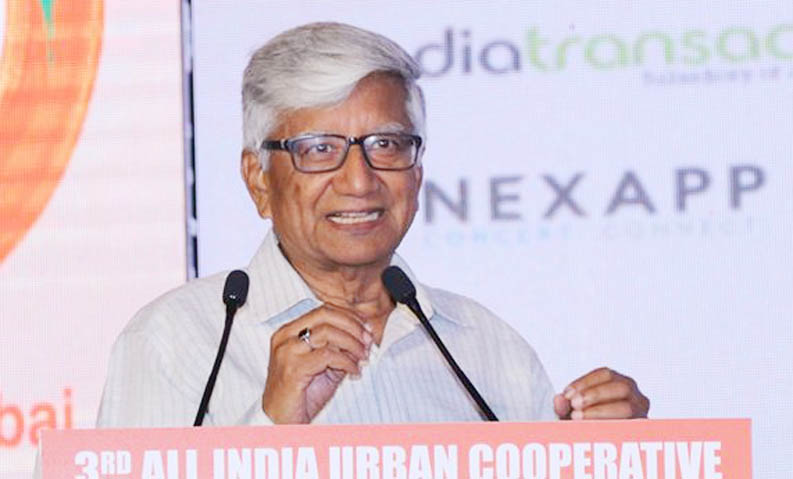D Krishna, a well-known name from the UCB sector has argued that since the Banking Regulations Act (Amendment) Bill 2019 is almost through bestowing on RBI the required powers, it is expected that RBI would henceforth not treat urban banks differently from commercial banks.
Krishna, who is involved with the core team in giving shape to the upcoming Umbrella Organization for UCBs, has mailed a letter titled “Way forward for urban cooperative banks” to RBI, highlighting concerns of urban cooperative banks.
He says a host of decisions taken by RBI exclusively for the urban banking sector about which the sector has expressed its reservations should be kept in abeyance and be withdrawn as soon as the bill is passed and notified.
Krishna says UCBs have all along been treated differently from the commercial banks. The depositors of UCBs are also unfairly treated as against the depositor of commercial banks.
Comparing the two, Krishna says “This aspect got highlighted in safety provided to depositors of Yes Bank and treatment meted out to depositors of PMC Bank, despite the cases of these banks being strikingly similar. The similarity is to the extent of the same business house having duped both the banks”.
The main excuse all along given by RBI for treating the urban banks differently was that they did not have the same powers over cooperative banks as they have over commercial banks. But the scenario may change with the passage of the Bill, he states.
According to D Krishna, following are the decisions in question,
i. The circular to banks to constitute Board of Management should be withdrawn as the RBI will now have full control over the Board of Directors itself and the controversial BOM, which was strongly opposed by the sector for its impracticality as a concept, now becomes redundant.
ii. With a complete regulatory control, RBI need not go in for extra operational directions exclusively for urban banks and therefore should withdraw the circular that reduces the single party and group exposure norms, that were bound to reduce competitiveness of urban banks.
iii. Further, directions in the circular asking the urban banks to align their borrowers’ profile with that of the SFBs and to have increased priority sector lending from 40 percent to 75 percent and small borrower lending of Rs25 lacs or less to be at least 50 per cent of the loan portfolio, would result in major shake-up in the banks. This circular also needs to be withdrawn once RBI is armed with more regulatory and supervisory powers.
The Banking Regulations amendment and the formation of Umbrella Organisation were two of the most important developments for the sector for a long time and that there has to be a change in the road map for the sector, says Krishna.
The RBI which has given the approval for formation of UO as NBFC has to be supportive in the formation and operational success of the UO as in the days to come it will play the role of a self-regulatory organization, besides providing a host of fund and non-fund based specialized services to urban banks, he concluded.















































Commendable post. The crux of the problem is not widely prevalent culture of mis-management as of the different(step-motherly) treatment to an entity legally categorized as bank- UCB or otherwise irrelevant once RBI, the regulatory authority is empowered to unilaterally control all the operations of bank. Laws, rules, regulations are relegated to non-existence once old, sick mindset, (reminiscent of its descent from evil colonial/feudal design to rule over captive populace) indulges in whimsical functioning because of either perceived impunity or in the changed circumstances in an unholy nexus with powers that be. The struggle to set the things in order and treat all institutions of a defined identity equally is really praise worthy from the core of my heart.